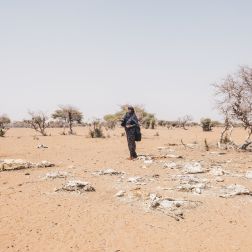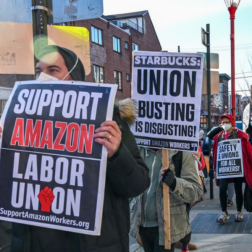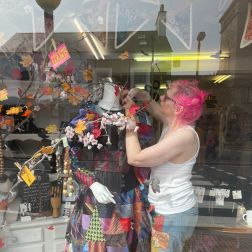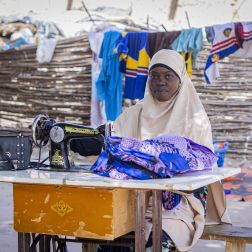- 4 mins read time
- Published: 6th March 2013
Voice of female farmers loud and clear this International Women’s Day
TV talent show The Voice is attracting a huge audience here at home but none quite so big as our Female Food Heroes competition, as Voice judge and Oxfam ambassador Sharon Corr discovered on her recent trip to Tanzania.
Using reality TV, radio, newspapers and text voting, the initiative has reached 25 million people – more than half of Tanzania’s population – and plays a vital role in strengthening the status of female farmers.
The 2012 competition – which Sharon Corr helped to launch – partnered with popular show Maisha Plus and saw 14 finalists selected from thousands of entries.
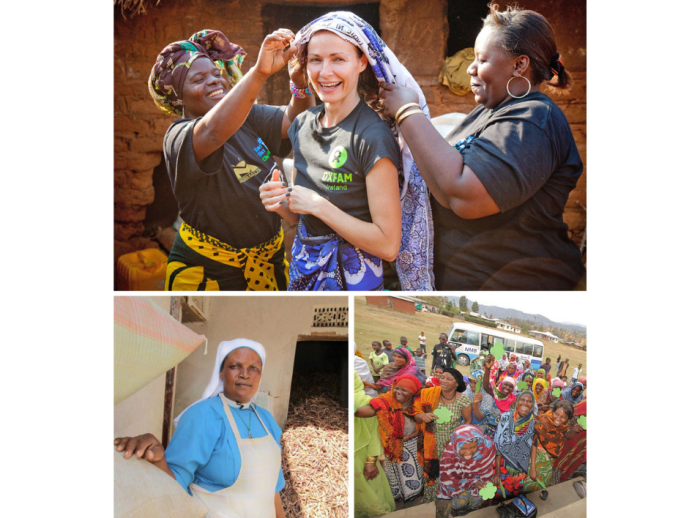
Clockwise from top: Previous winner Ester Jerome Mtegule and Oxfam Ireland’s Mwanahamis Salimu present our ambassador Sharon Corr with a traditional African headscarf at the launch of last year’s Female Food Heroes competition in Tanzania. Barry McCall/Oxfam. The Female Food Hero 2012 competition tours a village in the Lushoto Mountains region in northeastern Tanzania. Thousands of female farmers entered. Oxfam/MaishaPlus. 2012 winner Sister Martha Waziri transformed unwanted wasteland into a successful farm that feeds her local community, including 12 orphaned children. Oxfam/MaishaPlus.
Selected by public vote for the ways they’ve helped their communities, the finalists moved into a reality TV village and shared their skills with young people from urban areas on the show, which also helps to highlight the struggle women can face surrounding the ownership of land.
With International Women’s Day taking place this week and lots of our amazing supporters getting ready to host Get Together events to celebrate, we’d like to introduce the eventual winner, Sister Martha Waziri (45) from Dodoma.
As a 17-year-old she found some barren unused land that none of the local men wanted. But when she asked the local authorities if she could use it, they laughed at her. “I became an object of ridicule,” she recalls.
Eventually, she fought and got her way. She has since turned 18 acres of unwanted wasteland into a thriving farm, growing sugarcane, sweet potatoes, bananas and more.
In doing so she has become a beacon of change for other local women, many of whom have now followed her example. The profits from her farm have allowed Sister Martha to support 12 local orphaned children, providing them with food and shelter.
Thanks to your support, we can help incredible women like Sister Waziri to overcome the challenges they face and continue to feed their families and their communities.
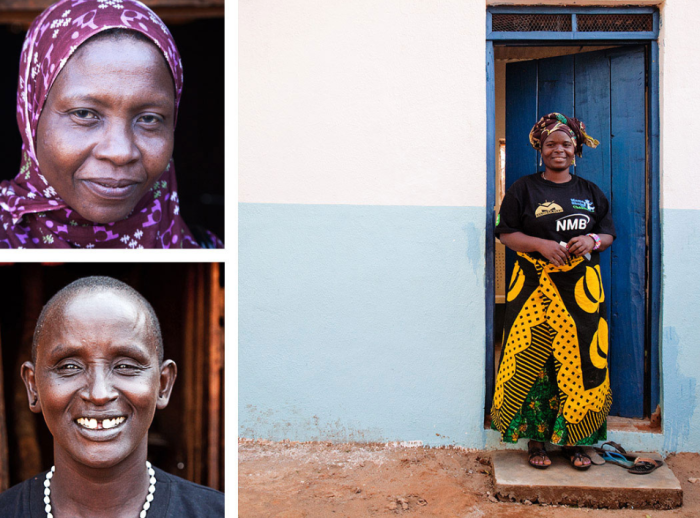
Clockwise from top left: As 2011 finalist Mwandiwe Makame won a solar panel which she shares with other women in her community; 2011 winner Ester Jerome Mtegule shows others how to replicate her innovative farming techniques and (top left) 2011 finalist Anna Oloshiro is a fellow trailblazer for women’s rights: “I believe that providing women with access to information will empower them more, make them aware of their rights and, in the process, they will change or improve their lives.” All photos by Barry McCall/Oxfam
Last year’s winner was Esther Jerome Mtegule from Iyenge in central Tanzania. She was one of the inspirational women who our Ending Poverty Starts with Women campaign ambassador Sharon Corr met in Tanzania.
Ester had managed to increase the yield of one of her crops from five to 75 bags a year by growing a drought-resistant variety instead of using the traditional one favoured by most farmers. This helped feed her whole village.
Her achievement received mass-media coverage and led to her travelling internationally to talk about the vital role of small-scale women farmers.
"I will do everything to support women food producers. They bring peace and harmony in their families and a nation at large," Ester explains. "And they bring freedom. I assure you that a food insecure family is not a free family."
Your support is helping women to empower themselves and become decision-makers in their communities. Thank you.
